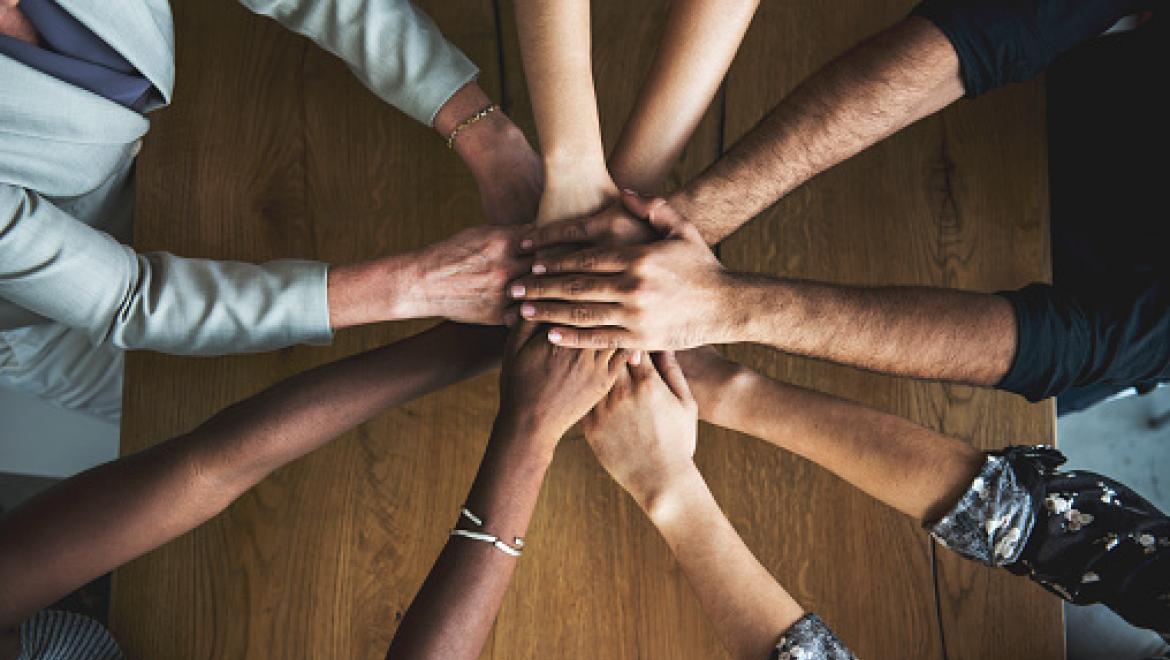The human rights and labour rights of the most vulnerable must be at the heart of the COVID-19 response
1. The COVID-19 pandemic could reverse years of progress towards ending child labour, forced labour, modern slavery and human trafficking. Without bold and transformative action, the international community will fail to achieve SDG Target 8.7. The Alliance 8.7 – Global Partnership to End Forced Labour, Modern Slavery, Human Trafficking and Child Labour – calls for an urgent and coordinated multi-stakeholder response to this common threat. Democracy, social justice, solidarity and respect for the rule of law are the principles of its engagement and the foundation of its action.
2. The rapid global spread of COVID-19 presents unprecedented challenges for the most vulnerable, as well as for workers and their families, civil society, businesses and governments all over the world. The pandemic reveals gaps in universal access to public health, education, food security, social protection and labour markets. Millions of workers (especially women in healthcare and other essential services) have continued to work to save lives and provide vital products and services to their communities, exposing their own lives and often working in unsafe conditions. Border closures and the disruption of supply chains, which have disastrous impacts on economies and employment, may increase the risk of human trafficking and also will have inadvertent negative impacts on efforts to increase transparency and due diligence in supply chains.
3. In many places, the respect for human rights and labour rights, particularly fundamental principles and rights at work, has come under pressure. In every region, children’s education has been affected, and distance learning platforms are weak or non-existent in many countries. Combined with pressure from the loss of livelihoods, temporary school closures may result in a permanent end to education for many children and a rise in child labour. Many workers, particularly those in the informal economy, have experienced a dramatic reduction in their income. They may have no choice but to take on debt, raising the risk of being trapped in forced labour.
4. Experience from previous crises has shown that failing to adequately address unemployment, business closures and the loss of livelihoods they entail, in addition to limited access to education and social protection, are likely to increase poverty, inequality and vulnerability. Furthermore, crisis situations often exacerbate violence and harassment at home and at work, including gender-based violence, and may lead more children and adults into child labour, forced labour and debt bondage. Although everyone is affected by the pandemic, it is the most vulnerable people, those at the margins of society that are at particular risk. This includes vulnerable workers in global supply chains, particularly those in the informal economy.
5. Governments, supported by other stakeholders of the Alliance, have a major responsibility in devising effective and sustainable responses, to make a real change. These responses should address the complexity of the challenge, informed by the knowledge and perspectives of employers, workers and the most vulnerable themselves, including victims, survivors and people at risk of child labour, forced labour, human trafficking and modern slavery. Special protection measures are required for forcibly displaced and stateless persons. The COVID-19 response should also ensure women’s equal representation in planning and decision making, and target women and girls through recovery programmes.
Social dialogue between governments, workers’ and employers’ organisations plays a crucial and essential role to ensure that policies are sustainable and respond to the needs of employers, workers and their families, in particular children and the elderly, migrant workers, informal economy workers and other groups in vulnerable situations.
Civil society organisations play an important role in advocating for the needs of affected groups and monitoring whether responses reach them.
International organisations should continue facilitating dialogue, cooperation and technical assistance.
6. The pandemic shows the need to strengthen national responses and to sharpen multilateral efforts of the international community on universal access to social protection, public health and education, and the protection of human rights and labour rights, including freedom of association, the rights of safety and health at work and gender equality as well as safe and legal pathways for mobility.
The response and recovery efforts must focus on the real economy, including by supporting business continuity to protect people’s jobs and incomes while securing safe workplaces through appropriate health and safety measures. In addressing the crisis, all stakeholders should seize the opportunities for decent work and sustainable development.
7. Alliance 8.7 partners encourage governments, social partners, civil society organizations and businesses to continue their efforts on ending these human rights violations in domestic and global supply chains, including by recognising and addressing increased vulnerabilities linked to the impact of COVID-19.
They urge them to minimize supply chain disruption to prevent adverse economic and employment consequences.
8. The Alliance 8.7 stands ready to support all stakeholders, in pathfinder countries and beyond, in their efforts to accelerate action, generate knowledge and share good and new practices to eliminate child labour, forced labour, human trafficking and modern slavery, including preventive measures under the current COVID-19 outbreak.
The Alliance 8.7 will review, in this regard, its workstreams to reorient them as required toward mitigating the impact of the pandemic, seek to mobilize additional human and financial resources to this end, and reinvigorate its Action Group on Conflicts and Humanitarian Settings.
9. The United Nations declared 2021 the Year for the Elimination of Child Labour. The Alliance 8.7 will therefore redouble efforts and to broaden partnerships, especially in the face of this global crisis.
The world is at a critical juncture, which presents an opportunity to chart new paths to reach the Sustainable Development Goals so that no one is left behind.
